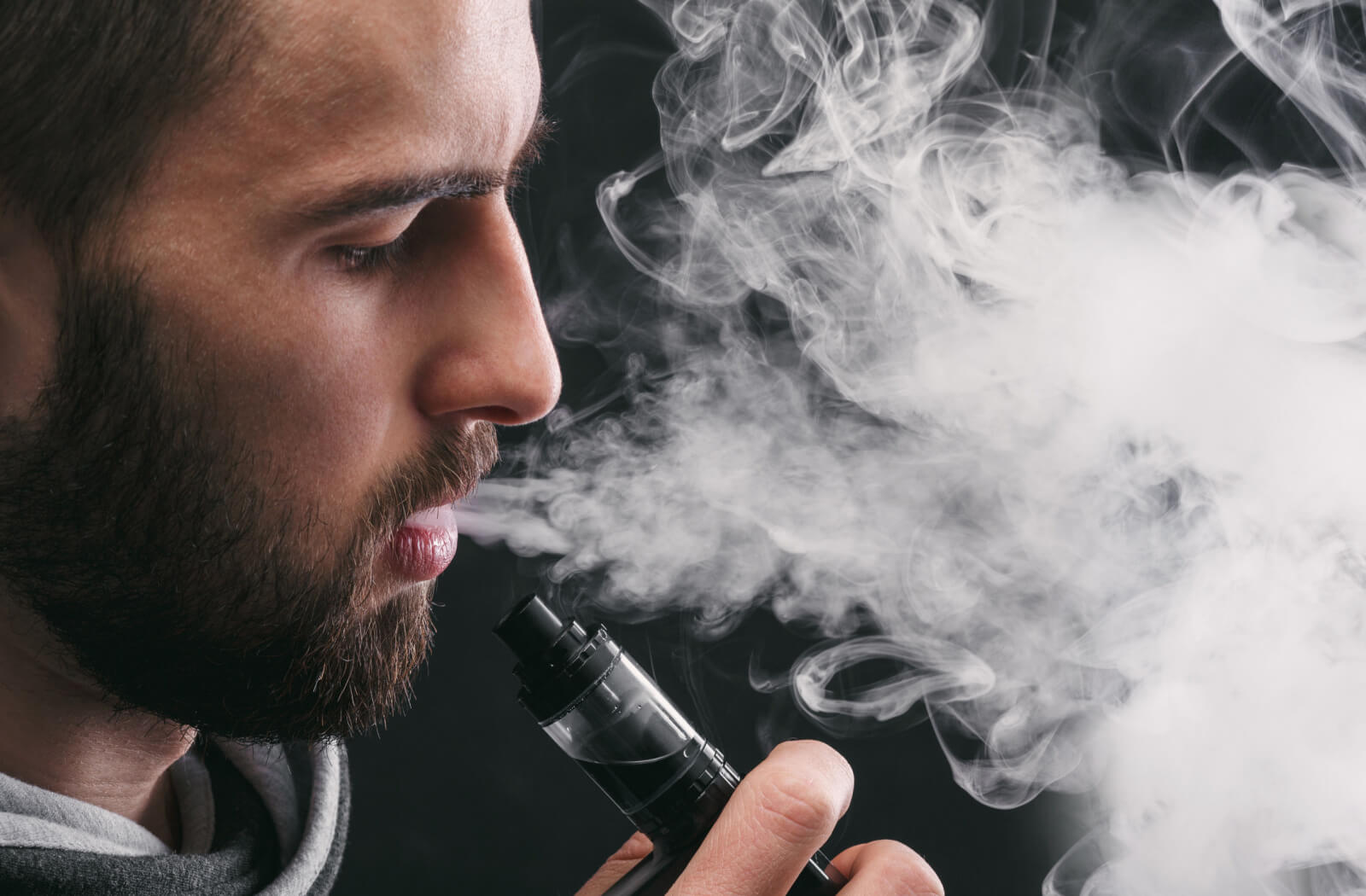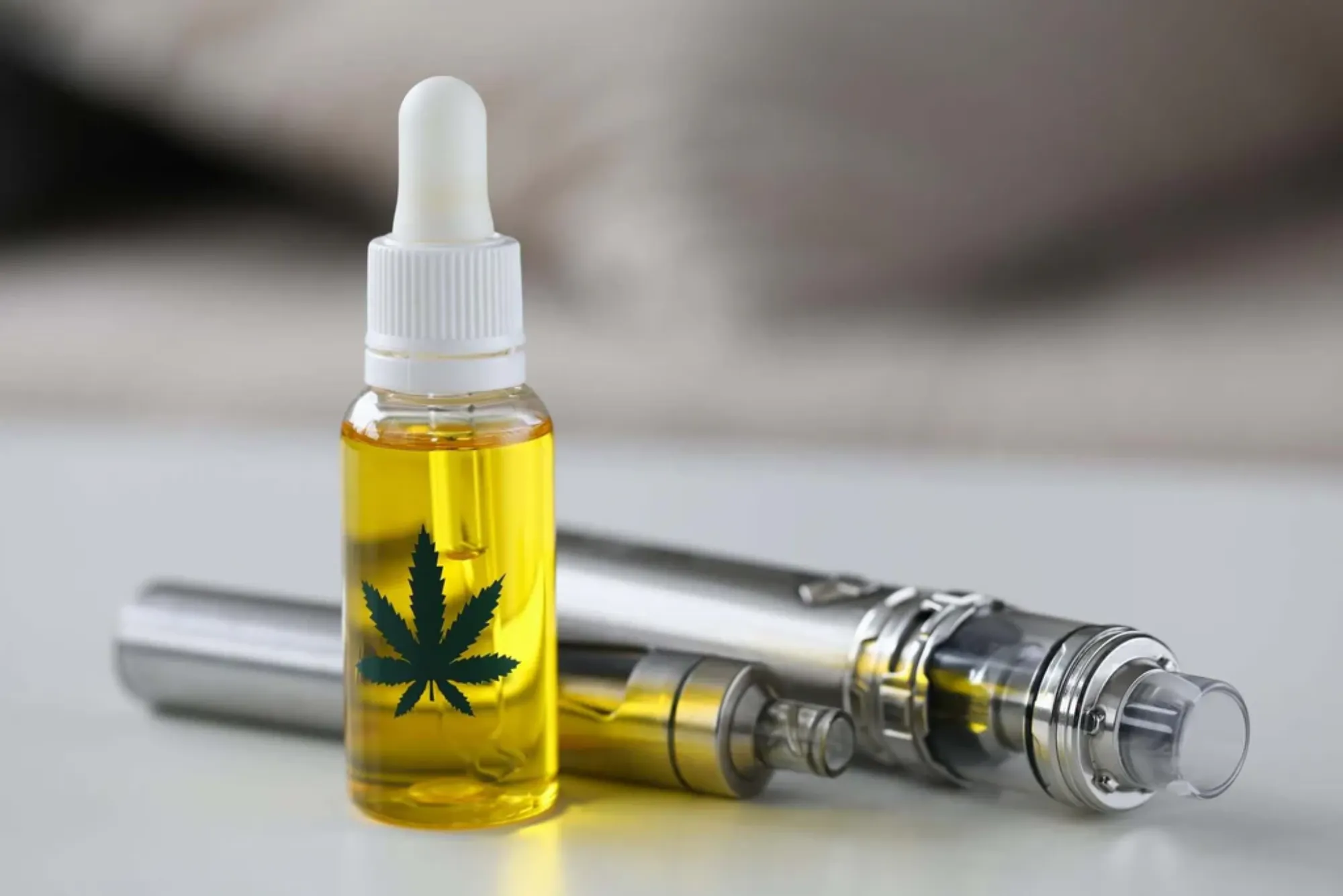With the rise of cannabis legalization in many areas, THC vape pens have surged in popularity as a discreet and convenient way to consume THC, the psychoactive compound in cannabis. THC vaping offers users a cleaner, smokeless alternative to traditional cannabis smoking. While many view this method as safer, emerging research and reported health incidents raise valid concerns. THC vape pens may still have significant health risks, particularly with regular, long-term use. This article examines the safety of regular THC vape use, highlighting its impact on various aspects of health, the potential for dependence, and the implications of unregulated products.
What is THC Vaping?
THC, or tetrahydrocannabinol, is the primary psychoactive compound in cannabis, responsible for the euphoric “high” associated with marijuana. A THC vape is a device designed to vaporize THC concentrates or oils, allowing users to inhale the vapor rather than smoke. Typically composed of a battery and a pre-filled or refillable cartridge, THC vape pens are portable and convenient, making them popular among both new and experienced cannabis users.
There are two main types of THC vapes:
Refillable Vaporizers:
Users can refill these with THC oil and customize their experience with various concentrates.
Disposable THC Vape Pens:
These come preloaded with THC oil and are thrown away once empty, offering a convenient, single-use option.
Both types of THC vapes produce vapor rather than smoke, avoiding the combustion process that creates tar and carcinogens. While many users believe vaping is safer than smoking, the question of how safe regular THC vape use is remains complex and multifaceted.
The Popularity of THC Vapes

The appeal of THC vaping lies in the ease and control it offers. Unlike smoking, which releases a strong, often lingering odor, THC vapes produce only a faint scent, making them more discreet. Additionally, the ability to control the dosage precisely has made THC vape pens especially attractive. Many users believe that because there is no smoke, THC vaping must be safer for their lungs.
Despite the belief that vaping is a healthier alternative, researchers are examining the potential risks. The convenience, high potency, and availability of THC vape pens may increase the risk of dependence and adverse health outcomes, especially with regular use.
Health Concerns Associated with Regular THC Vape Use

Although THC vape pens avoid the byproducts of combustion, they are not entirely without risks. This section will explore the potential health effects of regular THC vape use, including its impact on the respiratory system, mental health, cardiovascular health, and brain development.
Respiratory Health Risks
One of the primary reasons users choose vaping over smoking is to avoid the harmful chemicals produced by combustion. However, even though vaping doesn’t involve burning plant material, it can still expose users to harmful chemicals. Many THC vape cartridges contain additives like propylene glycol and vegetable glycerin, which help produce vapor but may also release toxic byproducts when heated. Inhalation of these chemicals can lead to lung irritation, inflammation, and other respiratory issues, particularly with frequent use.
The most notable respiratory risk associated with vaping was highlighted by the EVALI (e-cigarette or vaping-associated lung injury) outbreak in 2019. Many cases of EVALI were linked to THC vape products containing vitamin E acetate, a thickening agent that, when inhaled, caused severe lung damage. Regulatory measures have reduced the prevalence of vitamin E acetate, but the incident underscores the dangers of using unregulated THC vape pens. Furthermore, regular vaping may still expose users to other unknown additives, particularly with products sourced from unregulated markets, increasing the risk of respiratory issues.
Effects on Mental Health and Risk of Dependence
THC’s psychoactive effects stem from its ability to interact with the brain’s endocannabinoid system, influencing mood, perception, and cognition. While THC can provide temporary relief from stress and anxiety for some users, regular use may also have adverse effects, particularly when delivered in high concentrations through vaping. High-potency THC products, such as THC vape pens, can increase the risk of anxiety, paranoia, and, in severe cases, psychotic symptoms.
For individuals predisposed to mental health conditions like schizophrenia or bipolar disorder, regular THC vape use may exacerbate symptoms, complicating diagnosis and treatment. Additionally, the accessibility and high potency of THC vape pens can lead to tolerance and dependency. Studies indicate that regular, high-dose THC users may find it difficult to reduce or quit their consumption, leading to a dependence that can negatively impact daily life. Symptoms of THC dependence include irritability, sleep difficulties, and cravings, creating a cycle that is challenging to break.
Cardiovascular Health Risks
Although further research is needed to understand the full impact of THC on cardiovascular health, there is evidence that inhaled THC can temporarily increase heart rate and blood pressure. These changes may pose risks for individuals with pre-existing cardiovascular conditions, as they increase the likelihood of experiencing heart-related issues.
While more studies are necessary to confirm the effects of regular THC vaping on heart health, some researchers suggest that the concentrated THC doses delivered through vaping may place additional strain on the heart. In users with underlying heart conditions, frequent use of THC vape pen could increase the risk of complications, particularly with high-potency products.
Toxic Exposure from Unregulated THC Vape Pens
One of the primary concerns surrounding THC vaping is the potential for exposure to toxic additives and contaminants, especially with unregulated products. Regulated THC vape products are tested for purity and contaminants, ensuring they are free of pesticides, heavy metals, and other harmful chemicals. However, many users purchase THC vape pens from the black market or unlicensed sellers, where quality control is often lacking.
Unregulated THC vape products may contain pesticides, solvents, or heavy metals, posing additional risks to users’ health. The lack of oversight in these products increases the chance of inhaling toxic substances, which can lead to long-term health issues, particularly with regular use. For those who choose to vape THC, it’s essential to purchase from reputable, regulated sources to minimize the risk of toxic exposure.
Impact on Brain Development in Adolescents and Young Adults
The potential impact of regular THC vape use on the developing brain is particularly concerning for adolescents and young adults. The human brain continues developing well into the mid-20s, and exposure to THC during this critical period may impair cognitive functions, memory, and emotional regulation.
Studies have shown that regular THC use in young people can affect learning, attention, and decision-making abilities, with some effects potentially lasting into adulthood. Vaping, which often delivers high-potency THC, can exacerbate these effects, leading to changes in brain structure and function over time. Adolescents who use THC vape pens frequently may be at greater risk of cognitive deficits and mental health issues later in life, highlighting the importance of caution in young users.
Long-Term Effects on Lung Health
While THC vape users may avoid some of the immediate respiratory effects associated with smoking, regular vaping can still harm lung health over time. Studies have indicated that exposure to heated chemicals in vape products, such as propylene glycol and vegetable glycerin, may lead to chronic bronchitis, asthma, and other lung conditions.
Long-term exposure to these compounds may cause inflammation and scarring in the lungs, potentially leading to irreversible damage. The risk may be lower than with traditional smoking, but regular, long-term use of THC vape pens is still likely to impact lung function and respiratory health.
The Importance of Safe Usage and Moderation
Given the risks associated with regular THC vape use, it is essential to approach vaping with caution. Moderation is key, as frequent, high-dose THC exposure can increase the likelihood of dependence, mental health issues, and long-term lung damage.
Users should also be aware of the potential dangers of unregulated products. Purchasing THC vape pens from reputable sources ensures product safety and quality, reducing the risk of exposure to harmful contaminants and additives. Additionally, understanding the potential impact of regular THC vape use on physical and mental health can help users make informed decisions about their consumption.
Although THC vaping may offer a convenient and cleaner alternative to smoking, regular use presents health risks that users should carefully consider. The respiratory, mental health, and cardiovascular risks, as well as the potential for toxic exposure from unregulated products, indicate that THC vape pens are not entirely without danger. Particularly for young users, the potential effects on brain development add to the importance of moderation and informed decision-making.







